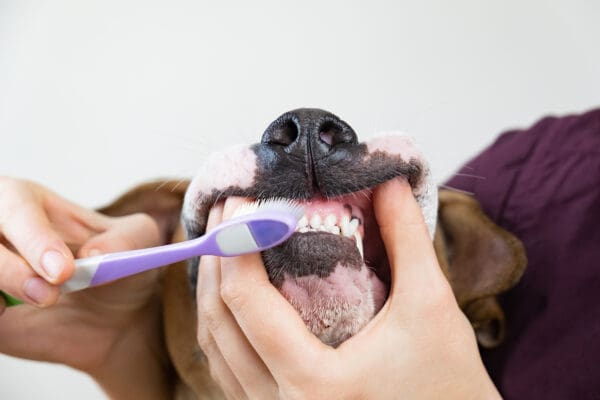
11401 NE 195th St. Bothell, WA 98011
(425) 486-9000 PHONE (425) 486-9002 fax
Quick Facts
- The average life span for a pet chicken is 10-11 years, but some can live into their 20’s.
- The American Poultry Association recognizes nearly 400 separate breeds and varieties of chickens. All of these breeds were developed from the domesticated red jungle fowl.
- Hens usually begin laying eggs at 4.5-5 months, although this is somewhat breed dependent.
- Chickens take baths in dust or sand instead of water.
Housing
Adult backyard chickens are usually housed in free range groups (flocks) outdoors, where they can graze and forage for their food. Chickens are naturally social animals, and need the companionship of other chickens. All backyard chickens should have access to a coop, which provides shelter and safety for sleeping and laying eggs.
Coops should be as large as possible, made of strong materials, easy to clean, and well-ventilated. To prevent access by predators, wire sides or sheet metal should be extended underground, and the top should be covered with wire mesh. A shaded portion is essential, especially in summer, and supplemental heat may be necessary in winter climates. Chicks need to be housed in a warm (85-90F) draft free enclosure until they are at least 10 weeks old. Adult chickens can tolerate much colder temperatures as long as they have a protected shelter to roost inside.
Roosts should be placed so that the tail or wing of a roosting bird does not touch the sides of the aviary. Sleeping boxes or pen areas should be well-secured at night and when owners are not home to protect the birds from other pets or predators. All chickens should have daily access to the outdoors for exercise purposes.
Substrate/bedding
Appropriate substrate/bedding for the floor of the coop includes wood shavings (pine or aspen, NOT cedar), sawdust, straw, or recycled paper pellets. The substrate should be cleaned and/or changed at least weekly to prevent ammonia buildup. Clean nesting material should be provided at all times.
Diet
Many disorders of captive poultry are directly or indirectly related to malnutrition. As with other birds, a seed diet is not a complete diet, nor is chicken scratch or cracked corn. Commercially formulated pelleted feeds are available for domestic fowl at all stages of life, and should comprise the majority of the diet. There is considerable variation in the levels of calcium, protein and energy content among the different rations, so be sure to choose the pelleted diet based on your chickens’ needs (i.e., feed a layer diet to egg producing hens).
It is not advised to feed commercial diets containing medications, unless specifically directed to do so by your veterinarian. Feeding these diets can increase chances of developing “drug-resistant” strains of bacteria.
Fresh green plants and vegetables should be fed regularly to provide your birds with nutritional diversity. Fruits can also be offered occasionally, but should comprise <10% of the total diet. Owners should refrain from offering their chickens table scraps, bakery goods and human foods in general. As an occasional treat, commercial mealworms or earthworms are relished.
Supplementing the diet of egg laying hens with crushed oyster shells may help provide an additional source of calcium in the diet. Fresh, clean water must be available at all times.
Schedule of Veterinary Care
Yearly to twice-yearly physical exams should always be performed. The goal in small chicken collections should be disease prevention by avoiding entry of disease organisms onto the premises. Vaccines for fowl are readily available for commercial use, but rarely utilized for private collections. If you are producing chicks on your property, we recommend vaccinating them for Marek’s disease at 1 day of age. If you purchase your chicks from a feed store or large supplier, they may have already been vaccinated; check with your source.
Common Medical Problems
- Pet chickens are susceptible to a wide variety of infectious diseases, including viral, bacterial and fungal infections. A few of these diseases may be zoonotic (transmissible to humans).
- Internal and external parasites are common in backyard flocks. Talk to your veterinarian for information regarding parasite control. Many “over-the-counter” preparations can be toxic or leave residues in eggs and/or meat.
- Aging chickens may develop heart disease, arthritis, gout, obesity, and/or kidney disease.
- Common reproductive system diseases include egg retention (dystocia), chronic infections, and tumors.
- Ingestion of non-food items, which may be toxic and/or cause intestinal blockages, is common.
- Chickens are susceptible to attacks by predators. Although many pet chickens appear to get along well with other household pets, such as dogs, cats or ferrets, they should never be left unattended. Sometimes chickens can also be hurt by other members of their flock.
Drug Residue Considerations
Treatment of medical conditions in pet chickens is complicated because chickens are potential food producing animals (either meat or eggs). Medications used to treat chickens must be legally approved for use in “food” animals if the chicken or any eggs are ever going to be used as food. Your veterinarian will advise you in writing of the withdrawal times (how long after treating all eggs must be discarded) for medications used in treating your chicken in order to prevent drug residue contamination. Specific drugs may require that all eggs and meat never be eaten for the life of the bird; you will have to sign a legal waiver stating that your pet and its eggs will never be consumed by humans if these medications are prescribed for your bird.
Laws and Permits
As chickens are considered “livestock”, there are often county and city regulations in place that must be followed in order to keep them legally. Sales of eggs and meat are regulated by local and federal laws, and transport of poultry is allowed only with appropriate permits. Please consult your local regulations and city codes for specific management guidelines. Your veterinarian may be able to help with any applicable inspections or permits needed.
March 30, 2015
Content of this Care Sheet Courtesy of:
The Center for Bird and Exotic Animal Medicine
11401 NE 195th St. Bothell, WA 98011
(425) 486-9000 PHONE (425) 486-9002 fax



